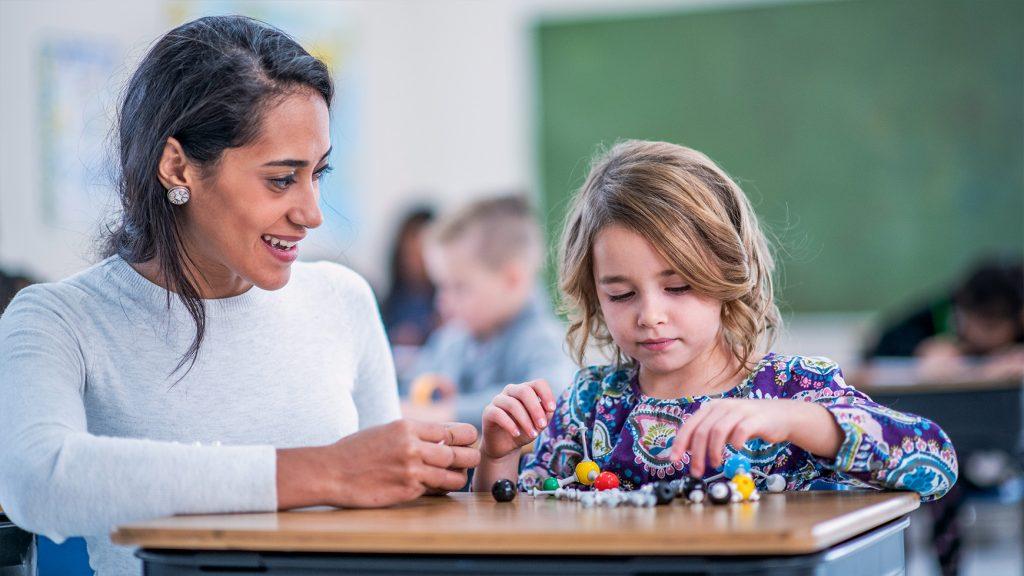If you have a child with ADHD, you are certainly aware of the fact that people with this disease often have problems managing their emotions. Emotional dysregulation is the term for this problem. To be clear, emotions are physical states, whereas feelings are the names we give to those sensations. Anger is the most difficult emotion for many people to live with. Dealing with your child’s anger, especially if it’s aimed at you can be difficult. Anxiety is another emotion that many children with ADHD experience.
Parenting is never easy, but it’s considerably more difficult when your child suffers from attention deficit hyperactivity disorder (ADHD). Common ADHD symptoms can appear without effective care, leading to meltdowns and behavioral issues. You can help your child handle even the most chronic symptoms with care and attention. Learn how ADHD affects both boys and girls, as well as how to calm a youngster with ADHD.
How to help your child with ADHD?
Executive function deficiencies are common in children with ADHD, including the ability to think and plan ahead, organize, regulate impulses and complete activities. That means you’ll have to step in as the executive and provide extra supervision as your child develops executive abilities on his or her own.

Although the symptoms of ADHD might be irritating, it’s vital to remember that your child is not acting maliciously when he or she ignores, annoys, or embarrasses you. Children with ADHD prefer to sit quietly, keep their rooms clean, and follow their parents’ instructions. However, they have no idea how to make it happen.
It will be much simpler to respond in a positive, supportive manner if you remember that having ADHD is just as frustrating for your child. You can manage childhood ADHD while providing a stable, lovely family with tolerance, sensitivity, and care.
7 Ways helps you to calm your ADHD child
It’s critical to help your child in managing their symptoms, regardless of which ones they have. As your child matures into a well-adjusted young adult, you may help them recognize and handle their attention and hyperactivity concerns with regular care. So, how can you assist your youngster in coping with feelings of anxiety or overwhelm? Take a closer look at these seven ways of calming an ADHD child.

Follow instruction:
It is your responsibility as a parent to follow through on recommendations if your child is diagnosed with ADHD and begins treatment. Consistency is crucial if you decide that medicine for your child is the best option for both of you. It’s crucial to understand that if your child’s treatment is done on a sporadic basis, it’s difficult to tell if it’s working. If you have any concerns about medicine selection or side effects, you should speak with their doctor. During this time, it’s critical to seek out extra support for your child, such as parent training, social skills groups, and therapy, to assist them in bettering their symptoms.
Maintain a positive attitude:
You set the tone for your child’s mental and physical well-being as a parent. Many of the factors that can have a beneficial impact on your child’s disorder symptoms are within your control.
- Seek guidance: One of the most important things to remember when raising an ADHD child is that you are not alone. Consult your child’s doctors, therapists, and teachers for further information. Become a member of a parent support group for children with ADHD. These communities give a safe space to vent feelings and exchange experiences, as well as a platform for giving and receiving advice.
- Maintain a good attitude: Your positive attitude and common sense are your strongest assets for assisting your child in dealing with the challenges of ADHD. You are more likely to connect with your child when you are calm and concentrated, which will assist him or her to be peaceful and focused as well.

- Have faith in your child: Consider or write down everything about your child that is positive, valuable, and different. Have faith in your child’s ability to learn, develop, mature, and succeed. Reaffirm your faith every day.
- Keep everything in balance: Keep in mind that your child’s behavior is symptomatic of a problem. It isn’t done on intention most of the time. Maintain your sense of humor. What’s embarrassing now is a funny family story in ten years.
Expectations should be set in advance:
When you create a family routine, talk it over with your child in advance. Set expectations for your child’s time, activities, and behavior by discussing the next day’s schedule with them each evening. Start setting expectations weeks or months in advance if you’re planning a break from the routine, such as a trip or a move, so they can prepare for the change.
Encourage sleep and movement:
Children with ADHD have a lot of energy to burn. Organized sports and other physical activities can help children focus their energy in a healthy way while also allowing them to concentrate on specific motions and skills. Physical activity has numerous advantages, including improved concentration, reduced depression and anxiety, and increased brain growth. The fact that exercise leads to better sleep, which in turn can reduce the symptoms of ADHD, is most relevant for children with attention difficulties.
Pick your battles wisely:
You can tempt to keep a close eye on your child’s every move as you work with him or her. Instead, encourage excellent behavior and correct negative behavior, but only after you’ve established clear expectations. If your child is responsible for finishing homework before dinner, you should be happy if they finish on time.
Guide your child in eating healthy:
Although food is not a direct cause of attention deficit disorder. It can affect your child’s mental state, which appears to change behavior. ADHD symptoms can be reduced by keeping track of what, when, and how much your child eats. Fresh foods, regular meal times, and avoiding junk food are beneficial to all children. These ideas are especially important for children with ADHD, whose hyperactivity and distractibility can result in skipped meals, disordered eating, and overeating.
Maintain a Calm Mindset:
No matter how hard you try, your child will feel frustrated from time to time. While you may not always be able to prevent meltdowns, you can control how you react to them. Instead of being angry or yelling, keep your cool and speak to your child quietly and calmly. Your cool attitude can keep the issue from getting out of control and inspire your child to do the same.
Enforce in your child the ability to make friends:
Simple social connections are often challenging for children with ADHD. They may have trouble reading social signs, talk excessively, interrupt constantly, or appear aggressive or excessively enthusiastic. Their emotional immaturity can set them besides other kids their age, making them targets for unfriendly teasing. But keep in mind that many children with ADHD are very bright and creative. They will ultimately find out how to get along with others and recognize people who aren’t suitable as friends. Furthermore, personality qualities that irritate parents and teachers may come off as funny and charming to friends.

















